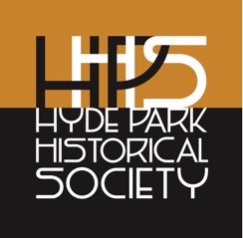The City of Chicago would not exist without the 1795 Treaty of Greenville, 1816 Treaty of St. Louis, 1821 Treaty of Chicago, and 1833 Treaty of Chicago, as well as many other treaties with Indigenous nations. These treaties, especially those made with the Anishinaabeg (Ojibwe), Odawak (Odawa), and Bodwadmik (Potawatomi), or Council of Three Fires, led to the creation of Chicago as we know it today and to the establishment of Hyde Park.
The Hyde Park Historical Society acknowledges that we are on the traditional territory of the Council of Three Fires. Many other Indigenous nations have made use of the lands and waterways of Chicago, including the Hoocąk (Winnebago/ Ho’Chunk), Jiwere (Otoe), Nutachi (Missouria), Baxoje (Iowas), Kiash Matchitiwuk (Menominee), Meshkwahk ha (Meskwaki), As k waki (Sauk), Myaamiaki (Miami), Waayaahtanwaki (Wea), Peeyankihšiaki (Piankashaw), Kiikaapoi (Kickapoo), and Inoka (IlliniConfederacy). Members of over 157 American Indian nations call Chicago home in the present-day.
As a local historical association, we appreciate the role of the local in the global and the global in the local. We recognize the history of local Indigenous nations as well as the global struggle for Indigenous rights. We respect their ties to the lands and waterways since time immemorial. We are responsible for honoring our treaties in the present day, in part through historical preservation and stewardship that includes and amplifies Indigenous persons and perspectives.
The Map to the right as well as above show Indian Trails and Villages of Chicago and of Cook, Dupage and Will Counties, Ills. from 1804 as shown by weapons and implements of the stone age. Copyrighted 1900 & 1901 by Albert F. Scharf



